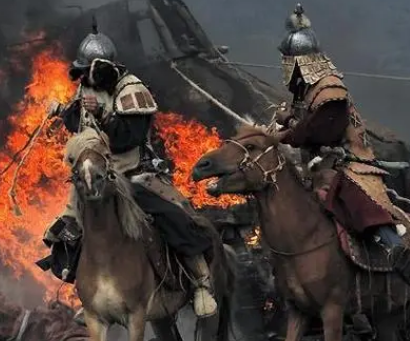Throughout Chinese history, there have been many valiant and skilled generals who have made remarkable contributions to the prosperity and development of their country. Among them, the Qing Dynasty general Tu Hai stands out as a typical example. With his outstanding wisdom and bravery, he successfully pacified the Chahar region, making significant contributions to the unity and development of the country. So, how did Tu Hai pacify Chahar? How did he achieve this? This article will unveil the mysterious veil of this period of history.

I. Background Introduction
Chahar was an important region during the Qing Dynasty, located within the borders of today's Inner Mongolia Autonomous Region. In the early years of the Qing Dynasty, the Mongolian tribes in the Chahar region were powerful and frequently raided neighboring areas, posing a significant threat to the country's security. To maintain the unity and stability of the country, the Qing government decided to pacify Chahar.
II. Appointment of Tu Hai
At this critical juncture, the Qing government appointed Tu Hai as the General of the West, tasked with pacifying Chahar. Tu Hai was a renowned general in the Qing Dynasty, known for his bravery, skill in battle, and numerous heroic feats for the country. His appointment was undoubtedly a testament to the government's trust and recognition of his abilities.
III. Tu Hai's Strategic Deployment
Facing the powerful Mongolian tribal forces, Tu Hai did not underestimate his enemy. He first conducted a thorough investigation of the Chahar region, gaining a deep understanding of the local terrain, climate, and people's conditions. Based on this information, he formulated a comprehensive strategic deployment, including dividing troops for defense, waiting for the enemy to tire themselves out, and luring them into a trap. This strategic deployment laid the foundation for the eventual victory.
IV. Tu Hai's Tactical Application
In actual combat, Tu Hai fully utilized his wisdom and bravery. He excelled in utilizing the terrain and climatic conditions, employing flexible and varied tactics that kept the enemy constantly off guard. At the same time, he also emphasized winning over the hearts and minds of the people, gaining their support through measures such as reassuring the populace and improving their livelihoods. The application of these tactics made Tu Hai's army invincible on the battlefield, ultimately leading to the successful pacification of Chahar.
V. Tu Hai's Post-War Governance
After pacifying Chahar, Tu Hai did not let his guard down. He believed that only by consolidating the post-war achievements could the long-term stability and prosperity of the Chahar region be ensured. Therefore, he actively engaged in governance work after the war, strengthening border defense, improving the people's production and living standards, and gradually leading Chahar towards prosperity and development.
In conclusion, Tu Hai's successful pacification of Chahar was a result of his outstanding wisdom, bravery, meticulous strategic deployment, and tactical application. After the war, he also actively engaged in governance work to consolidate the post-war achievements. It was this rigorous attitude and high sense of responsibility that made Tu Hai a prominent general in Chinese history.
Disclaimer: The above content is sourced from the internet and the copyright belongs to the original author. If there is any infringement of your original copyright, please inform us and we will delete the relevant content as soon as possible.
































